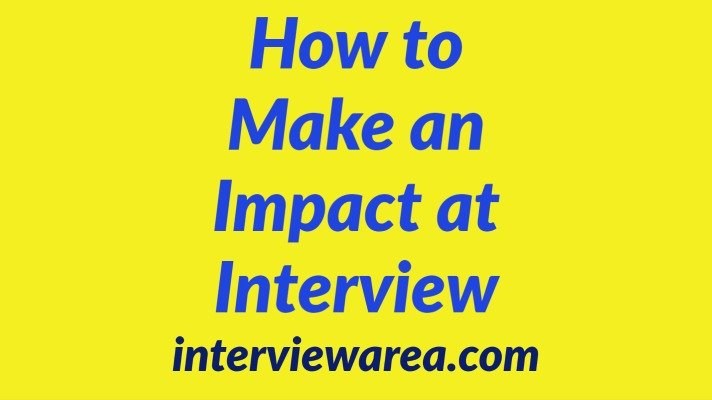Effective preparation is fundamental to a successful interview. Doing your homework helps you create a positive personal impression and raise you above the competition. James Dalby, an interview specialist with Impact Associates, says “many people arrive woefully under-prepared for their interview. Finding out about the company and its activities not only helps you to present a good impression at interview, crucially, it also helps you decide whether you want to work for that organisation.”
The key to any successful interview is careful preparation and planning. At any interview you are selling a product - YOU. Few businesses would launch a product without proper market research and planning; in the same way, effective preparation and planning are crucial in making sure you present yourself in the best possible light and persuade the employer to give you the job.
Follow six simple steps to give yourself the best possible chance of success.
- PROFILE the company
- PROBE the job description
- PLAN your response
- PREPARE for success
- PRESENT the right image
- PRACTICE, practice, practice!
1. PROFILE THE COMPANY
A great many people approach interviews with little or no knowledge about the company that they are aspiring to work for. This lack of knowledge soon becomes apparent to an interviewer and does nothing to impress. Researching company information is very worthwhile and can make a crucial difference to the outcome of an interview, as well as providing useful background information for the prospective employee.
You don’t need to write a dissertation on the subject, but demonstrating a little knowledge of the company and its operations - in the right way - shows an interviewer very clearly that you are serious and prepared to invest in getting the job.
Sources of information
- Directories and Registers are widely available in local libraries and are free!. There are many to choose from, depending on your particular field.
- Companies House provides information (for a small fee) by post or fax on over 1 million companies registered in England and Wales.
- Careers Centres usually carry vast libraries of company information. You have easy access if you belong to a college or university; if you don’t, many institutions are happy to allow access at quiet times - ring your local establishment for information.
- Newspapers / trade journals carry varied and current information. Refer to the British Humanities Index or similar (in your local library) to find topics of interest.
- Internet more and more companies publish a web site on the Internet which usually includes a Company Profile and information on business activities.
- Company’s own information most larger companies produce fact sheets which are available to interested parties (usually from the Corporate Communications or Press Office). Many companies will send some basic company information with your application form or interview invitation - if not, ask!
What to look for
- Business interests
What activities is the company involved in? Who is the parent company? Market share? - Financial summary
Annual turnover? Profitability? Performance? - Basic statistics
The number of employees? Number and location of sites / outlets? - Recent activities
Mergers? Acquisitions? - Product launches
New designs / ranges? - Expansion plans
New areas of business / markets? New locations? - Major competitors
Main competitors? What are they doing which could impact on the business?
2. PROBE THE JOB DESCRIPTION
Understanding the job description sounds very basic but a surprising number of candidates approach the interview with only the vaguest idea of what the job is actually all about. Probing the job description will ensure that you have a good idea of what the job actually entails, and you can tailor your responses to highlight relevant experience, qualifications and interests.
Finding out about the job
- Most companies will send a job description either with your application form or letter of invitation. Don’t be afraid to request one if necessary.
- If you have a friend or colleague in a similar role, ask them.
- General information about the type of work can be found in various books, written mainly for graduates and available in local libraries. Even if you are not a graduate, the principles and key information will be relevant at all levels so you can still make use of them.
To help you formulate your responses to questions, it is important to focus on the job requirements and continually review how your skills, qualities and achievements meet those needs.
A useful framework is to begin by writing down the main requirements of the job, and listing them alongside your matching ‘qualifications’.
3. PLAN YOUR RESPONSE
Many interviewees complain ‘how can I be prepared when I don’t know what the interviewer will ask?’ The key here is to anticipate their questions. After all, they are asking about your specialist subject - YOU!
Research shows that although there are thousands of permutations, most questions fall into the following seven main areas:
- Tell me about yourself
A classic opener, and a potential minefield for waffle and irrelevancy! Use this as an opportunity to briefly outline your main skills and attributes using your One Minute Marketing Plan - Why do you want this job?
Concentrate on matching your skills and qualities to the job requirement - What are your major strengths?
Identify strength and link to an achievement; e.g. “I am very good at organizing people to get things done - I recently organised a charity event raising £40,000” - What are your weaknesses?
Make any weaknesses a positive; e.g.. “I like to get things done quickly and this sometimes makes me impatient” or “I have very high standards and I demand the same of others” - What do you know about our organisation / this job?
You will have done your research, so reflect this in your response; e.g.. “I’m very interested in the plans to introduce children’s clothing to your portfolio….” - What things do you most enjoy doing in your current job?
Focus on things you are good at, and which directly relate to the target job. Think about your analysis of the job description - What frustrates you most about your current job?
Frustrations are a normal part of any job. Relate something non-controversial which has caused you problems (avoid personality conflicts etc.) and, most importantly, describe how you overcame the problem
4. PREPARING FOR SUCCESS
A few basic preparations can help to smooth your path on the day.
- Plan your journey: make sure you have train times, journey times, car parking details, maps/directions, addresses, contact details, phone numbers, change for parking etc. If you are likely to be unavoidably delayed, ring the office and briefly explain, give an estimated time of arrival and don’t panic
- Prepare an interview pack: put together a file with a few key items including copies of your CV/application form, company literature, letter of invitation, One Minute Marketing Statement, list of questions
- On arrival: plan to arrive 15 minutes before your allotted appointment; use this time to leave any excess baggage with the receptionist; check your appearance, re-read your CV/ application form, RELAX. Be pleasant and polite to everyone you meet. It pays to make a favourable impression with everyone.
5. PRESENT THE RIGHT IMAGE
Good personal presentation is absolutely key to success. The well-used phrase that first impressions count is never so true as in an interview situation. A lot rests on the first impression you make, both in your appearance and body language.
There is much research into the effect of “First Impressions”. It has been said that many interviewers will form an impression of you in the first 30 seconds, and will have more or less decided on the outcome of the interview in the first four minutes.
There is no right or wrong way to dress or look for a particular job; the key is to look like you’re already one of them.
Appearance
Most types of jobs have stereotypical dress codes: e.g. A conservative style of dress is usually more appropriate for banking; something more casual may be more relevant to media work. You will already have a good idea of what is generally acceptable, but err on the side of caution - a good suit is rarely wrong.
Whatever the industry sector or organisation, there are some golden rules it is advisable to follow. They may seem obvious, but it is amazing how many job candidates ignore them.
Personal Grooming
- Dress to the industry stereotype
- Dress as expensively as you can afford
- Be comfortable - if you have invested in a new outfit, make sure it has been ‘run-in’
- Dark colours usually carry higher authority
- Keep make-up to a minimum
- Avoid distracting jewellery
- Avoid perfume or aftershave
- Make sure your shoes are well polished and not down-at-heel
- Don’t smoke while dressed in your interview clothes; most companies operate a no-smoking policy and the smell of cigarette smoke is much more noticeable in these environments and can be very off-putting
Body Language
- Body language is incredibly powerful. There are thousands of books on this very large subject; here is a distillation of some of the more important points to remember:
- Strong handshake: conveys confidence (and social grace!)
- Sit comfortably: sit in a comfortable position for you; mirroring the interviewer’s position is a sign of harmony
- Smile: shows you are relaxed - but don’t grin like a maniac!
- Avoid fiddling: with pens, jewellery etc.
- Lots of eye contact: conveys honesty as well as confidence
- Don’t invade the interviewer’s space: sit only when invited to do so and never put your briefcase or files on their desk; place them in an accessible position - on the floor if necessary
6. PRACTICE, PRACTICE, PRACTICE!
Get your partner or a friend to interview you and give constructive criticism on your performance. Better still, use the services of a professional interview training specialist who is both experienced in interviewing from an employer’s perspective and can advise on how interviewees can best present themselves.

